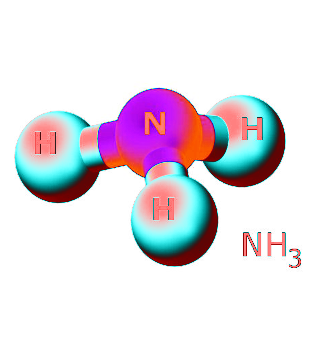New catalyst for better conversions
 New catalyst technology promises cleaner energy and advanced wastewater treatment.
New catalyst technology promises cleaner energy and advanced wastewater treatment.
A breakthrough has emerged from a collaboration between researchers at the University of Technology Sydney (UTS) and Hokkaido University, Japan.
The team has developed a new catalyst, NiOOH-Ni, which offers enhanced efficiency in ammonia conversion.
Catalysts are critical in many industrial and environmental processes because they speed up chemical reactions without being consumed.
The newly developed NiOOH-Ni catalyst, made from nickel and nickel oxyhydroxide, has demonstrated remarkable capabilities in converting ammonia, a substance notorious for its environmental hazards, into less harmful compounds.
Ammonia poses serious risks to ecosystems and human health.
When present in high concentrations, it can lead to excessive algal growth in water bodies, which depletes oxygen and harms aquatic life.
It is also corrosive, making its management a complex challenge.
The NiOOH-Ni catalyst could play a crucial role in addressing these issues.
“NiOOH-Ni works better than Ni foam, and the reaction pathway depends on the amount of electricity (voltage) used,” says Professor Zhenguo Huang, who led the study.
“At lower voltages, NiOOH-Ni produces nitrite, while at higher voltages, it generates nitrate.”
This adaptability means the catalyst can be tailored for various applications, from cleaning wastewater to producing hydrogen gas, a clean fuel alternative.
The catalyst was developed using an electrochemical process where nickel foam is treated with an electric current while submerged in a chemical solution.
This process forms nickel oxyhydroxide particles on the foam's surface, enhancing its ability to convert ammonia efficiently, even at lower voltages and higher currents than conventional catalysts.
In addition to its efficiency, NiOOH-Ni is both durable and stable.
“NiOOH-Ni is impressively durable and stable, and it works well even after being used multiple times,” noted Associate Professor Andrey Lyalin from Hokkaido University.
“This durability makes it a cost-effective alternative to traditional catalysts like platinum, which are more expensive and less effective in ammonia conversion.”
The potential applications of this catalyst extend beyond wastewater treatment.
It could revolutionise industries by providing a more efficient and environmentally friendly method for producing hydrogen, positioning NiOOH-Ni as a key player in the future of green chemistry and clean energy.
The research is published in Advanced Energy Materials.








 Print
Print